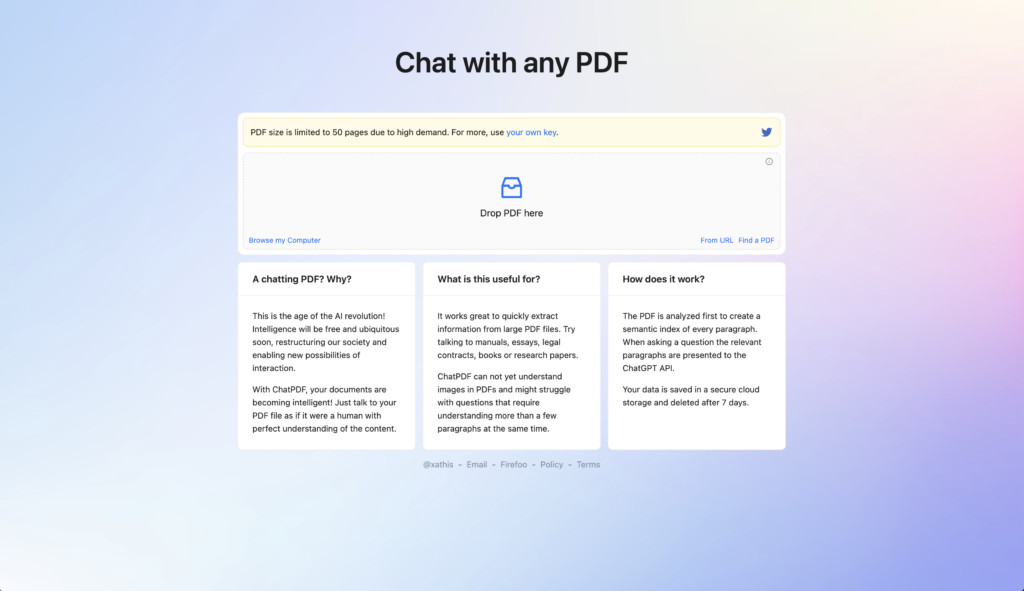The integration of artificial intelligence in legal practices continues to reshape how attorneys work and interact with data. Two leading technologies at the forefront of this revolution are Custom GPTs and Retrieval-Augmented Generation (RAG). These tools, though similar at first glance, offer distinct advantages and limitations. Understanding these can greatly benefit your practice in handling complex legal tasks with greater efficiency. Impact-Site-Verification: 8e96982d-3f67-4a58-928c-88f2aed5cd8d
Custom GPT and RAG in a Nutshell
Custom GPT is essentially a personalized AI tailored to your specific data and designed to perform tasks based on this knowledge. It can understand and generate responses or documents that are closely aligned with your legal practice’s needs.
RAG, on the other hand, is an AI chatbot that excels in retrieving information directly from your database. It’s like having an incredibly fast and accurate research assistant at your fingertips, capable of pulling relevant data to support your cases.
While they may sound similar, the practical applications and potential drawbacks of each system are quite different, making them uniquely powerful tools for legal practitioners.
Limitations in Generative AI
Despite their advancements, large language models usually have inherent limitations:
- No Up-to-Date Knowledge: AI systems often lag behind the latest developments unless regularly updated.
- Limited Specialty: General AI may lack deep legal expertise necessary for complex legal reasoning.
- Hallucination: There’s a risk of generating incorrect or fictitious information. For example, a New York lawyer was fined $5,000 for submitting a brief generated by ChatGPT that referenced non-existent cases.

Custom GPT
Pros
- Ease of Customization: Quickly adapt the AI to your needs without any coding skills.
- Versatility: Operate multiple Custom GPTs together for diverse tasks.
- Complex Integrations: Use third-party APIs to enhance functionality.
Cons
- Privacy Concerns: On standard plans, your data might be used to further train the AI models.
- Generative AI Limitations: Similar risks of inaccuracies and outdated information.
- Knowledge Base Limits: Currently, a maximum of 10 files can be integrated, restricting the breadth of accessible data.

RAG
Pros
- Scalability: No limits on file size or number, allowing extensive data integration.
- Privacy and Customization: Options to use local or open-source LLMs ensure data privacy and tailor-fit solutions.
- Free Customization: Flexibility without additional cost.
Cons
- Complex Setup: Requires technical know-how to develop and maintain.
- Quality Risks: While cost-effective, the output’s quality heavily depends on the underlying data’s accuracy.
No-Coding RAG Solution
Interested in a no-coding RAG?

Try chatPDF.com, where you can upload PDFs, query them directly, and even view the sources of information pulled by the AI, all in multiple languages.
It’s super simple. Upload your PDF and start chatting like you’re using ChatGPT.

Which Should You Choose?
The choice between Custom GPT and RAG depends on your specific needs:
- Custom GPT is ideal if you require high-quality drafting and complex functional layers within your AI tools.
- RAG is best for those who prioritize vast, efficient data retrieval in a secure environment where information accuracy is critical.
Both technologies offer transformative potential for legal practices, but selecting the right tool can significantly enhance your ability to handle legal challenges more effectively and with greater precision. Explore these options to determine which AI solution aligns best with your practice’s goals and operational needs.
Embracing AI in Legal Practice
Both Custom GPTs and RAGs offer compelling benefits, but their effectiveness is maximized when used in tandem. By leveraging both technologies, legal professionals can ensure that their practice not only remains competitive but also operates at the forefront of technological innovation. As AI continues to evolve, keeping abreast of these technologies will be key to transforming challenges into opportunities within the legal sector.
In conclusion, whether it’s the bespoke assistance of Custom GPTs or the comprehensive knowledge retrieval offered by RAG, incorporating these AI technologies into your practice could dramatically enhance your efficiency and effectiveness, ensuring you stay one step ahead in the digital legal arena. Get ready to embrace the future, where AI and law blend seamlessly to redefine the legal landscape!

